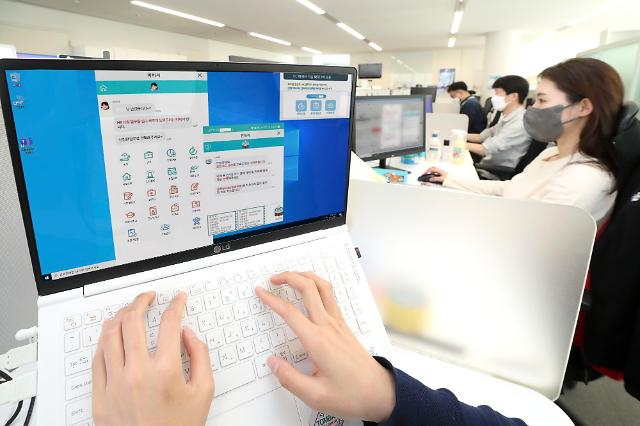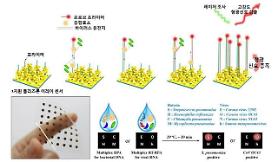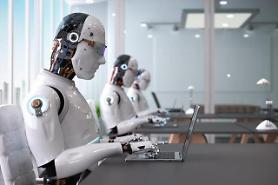
[Courtesy of KT]
A robot process automation (RPA) solution is an automated work assistant solution that can effectively help human workers take care of simple and repetitive chores such as sorting and processing vacation applications or calculating overtime wages. Such automated solutions incorporate basic levels of artificial intelligence but many of them are not autonomous and need human supervisors to provide work directions.
KT has started adopting various RPA solutions to speed up work processes since 2020 when the first wave of a coronavirus pandemic hit South Korea. KT was one of many large companies which had switched their workplaces into remote working environments to prevent the spread of the infectious disease while maintaining the integrity of work.
The telecom company said that it was able to annually save operational costs of about 10.3 billion won ($8.3 million) and more than 90,000 work hours by using RPA solutions including chatbots and robot surveyors to take care of simple chores. A non-contact remote contract signing solution was also adopted to help workers sign digital contracts without meeting their counterparts.
The COVID-19 pandemic has accelerated the global growth of the world's RPA market. According to global market research firm Precedence Research, the global RPA market will stand at $23.9 billion by 2030 thanks to conglomerates and administrative offices that seek effective ways to reduce costs and time.
The South Korean government has adopted various RPA solutions to free their workers from meaningless paperwork and repetitive, time-taking chores. In November 2021, the veterans' ministry adopted an RPA solution to help human workers select and register war veterans. A southern Seoul district adopted an automated solution in 2020 to process civil complaints.
Copyright ⓒ Aju Press All rights reserved.



